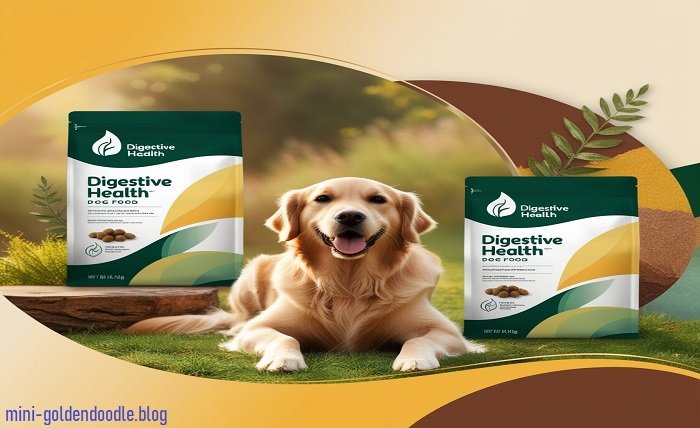Digestion is a sometimes disregarded component of our beloved friends’ overall health. Dogs can have digestive problems that impact their general health, level of energy, and mood, just like humans do. Selecting dog food that is specifically designed to support digestive health dog food can have a big impact on your pet’s longevity. This blog post will discuss the value of digestive health in dogs, what to look for in dog food that promotes digestive health, and how to keep your dog’s gastrointestinal system in good working order.
Understanding Dog Digestion
Dogs’ digestive systems are distinct from those of humans. Their stomachs and intestines are essential for breaking down food and absorbing nutrients because their systems are made to process diets high in protein. Selecting the proper digestive health dog food might be made easier if you are aware of how this system operates. Dogs can effectively digest protein and fat because of their comparatively short gastrointestinal tracts. This implies, nevertheless, that they might have trouble with some kinds of carbs and inferior ingredients.
The Importance of Digestive Health
Immune system performance, food absorption, and general health all depend on a digestive health dog food system. Increased energy, a happier mood, and a strong immune system are all correlated with intestinal health. An effective digestive tract allows a dog to break down food and absorb nutrients that are necessary for development, energy, and general well-being. On the other hand, poor digestive health can result in a number of problems, such as malnourishment, weight loss, and a reduced quality of life; therefore, it is imperative that dog owners give their dogs’ gastrointestinal health top priority.
What to Look for in Digestive Health Dog Food
High-quality proteins, which are easier to digest, fiber sources like sweet potatoes, peas, and pumpkin that help regulate bowel movements, probiotics—beneficial bacteria that promote a healthy gut environment—and prebiotics—non-digestible fibers that feed probiotics and enhance gut digestive health dog food—should all be taken into account when choosing dog food for digestive health. These components are necessary for any dog experiencing digestive issues because they combine to provide the best possible digestion and nutrient absorption.
Types of Digestive Health Dog Food
Potatoes and peas are common substitute carbohydrate sources in dog diets that are grain-free. digestive health dog food with grain sensitivity may benefit from these options, but it’s important to choose them carefully to make sure they offer a balanced diet. While some dogs may benefit from grain-free diets, it’s important to speak with your veterinarian to be sure the food fits your dog’s unique nutritional requirements and doesn’t cause vitamin shortages.
Tips for Transitioning to Digestive Health Dog Food
It’s imperative to gradually modify your dog’s diet to prevent stomach distress. By introducing progressively more of the new food into the old over the course of several days, you can facilitate your dog’s adjustment without putting them through any stomach upset. A gradual introduction minimizes the chance of symptoms like vomiting or diarrhea by giving your dog’s digestive system time to adjust to the new substances.
Maintaining Your Dog’s Digestive Health
Regular trips to the vet are essential to keeping your dog’s digestive system healthy. Frequent examinations can assist in detecting any possible problems before they worsen, enabling early intervention and treatment. In addition, your veterinarian can offer advice on nutrition, digestive health dog food, and any tests required to evaluate the digestive health of your dog.
Conclusion
A dog’s general health is closely linked to his or her digestive system. Selecting the best digestive health dog food for digestive health can have a big impact on your pet’s life. You can help your dog live a longer, healthier life by being aware of the symptoms of problems with their digestive system, knowing what to look for in dog food, and being aware of how that system works. Read more about: chloe berger news
FAQ
Which ingredients are ideal for dog food that promotes digestive health?
To maintain gut health, look for high-quality proteins, sources of fiber, probiotics, and prebiotics.
If my dog has stomach issues, can I give him a homemade diet?
Yes, but make sure it satisfies all nutritional needs and is balanced to avoid shortages.
How much time does it take to switch to dog food?
In order to prevent upset stomach, a slow transition spread out over 7 to 10 days is advised.

